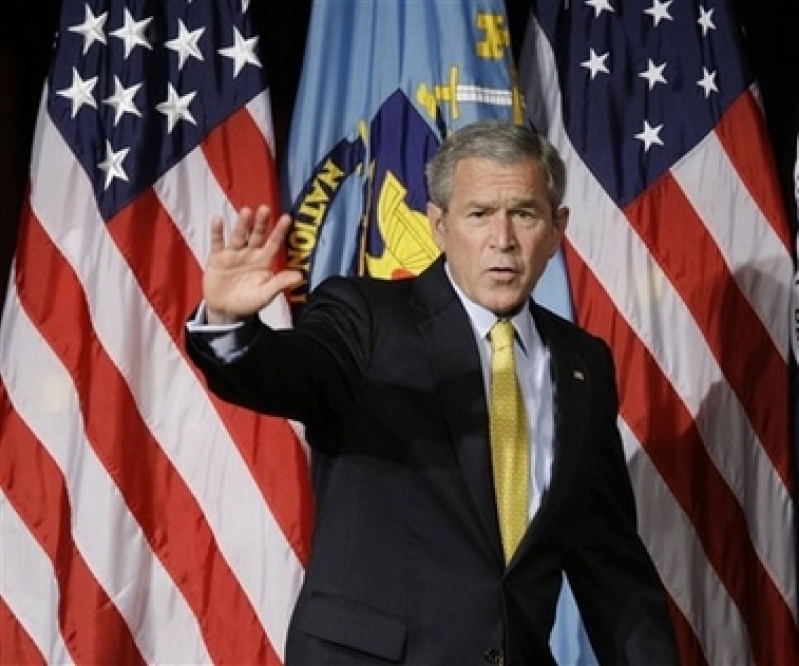
WASHINGTON – The White House indicated Tuesday that the president would veto a bill seeking to grant greater rights to homosexuals in the workplace if Congress passed it this week.
The Executive Office of the President issued a statement of administration policy expressing that the Employment Non-Discrimination Act, H.R. 3685, raises concerns on constitutional and policy grounds, and that his senior advisors would recommend President George W. Bush to veto the bill.
Concerned Women for America, a conservative public policy women’s organization, applauded the White House for signaling a likely veto of ENDA.
“This dangerous bill would pit the government directly against the free exercise of religion, a situation which is unconstitutional on its face,” said Matt Barber, CWA’s policy director for Cultural Issues.
“Members of Congress should join the president and exercise their sworn duty to defend the U.S. Constitution by voting ‘no’ on ENDA,” he added.
ENDA seeks to add sexual orientation to the list of federally protected classes – which includes race, color, religion, sex and national origin – that prohibits job discrimination.
Colin A. Hanna, founder and president of the conservative grassroots group Let Freedom Ring, pointed out that while the current legislation had some provisions exempting churches it would apply to Christian ministries and pro-family groups who are against the homosexual lifestyle.
An organization “whose entire focus” and “reason for being” is to promote a particular social view based on scripture would be forced to hire a person with a “diametrically opposing” view on the issue, Hanna contends.
“That is about as upside-down and about as perverted a reading as what the first amendment is about as I can imagine,” Hanna said at an ENDA press conference on Friday.
The White House agrees that the legislation is “inconsistent” with the right to free exercise of religion. It also highlighted that the bill’s wording is “imprecise” and subjective to interpretation that would make enforcement “extremely difficult,” such as establishing liability for “perceived” sexual orientation, or “association” with individuals of a particular sexual orientation.
“If passed, H.R. 3685 is virtually certain to encourage burdensome litigation beyond the cases that the bill is intended to reach,” the White House warned.
Some have raised questions on how human resource managers would apply the bill in the real world. They emphasized that someone can easily be identified as black, female or of a particular religion, but there is no way to identify someone’s sexual orientation besides a confession by the individual.
Under the legislation, homosexuals could sue their employer for firing them by claiming they were released due to their sexual orientation when their employer fired them because of poor job performance. It would be difficult for human resource managers to distinguish if a person was fired because of their poor performance or for their sexual identity.
“It (ENDA) is not needed. All that is needed is men and women to decide who they are and go to work everyday and do their job,” stated the Rev. Rick Scarborough who heads Vision America – a grassroots movement to restore Christian values in society.
Alliance Defense Fund president and general counsel Alan Sears thanked the White House for threatening to veto the “dangerous” and “blatantly unconstitutional” ENDA bill.
“We’re very thankful that the White House has recognized these constitutional issues and has advised the president to veto this legislation if it reaches his desk,” he said.
The U.S. House of Representatives is expected to debate and vote on H.R. 3685 as early as Wednesday.






